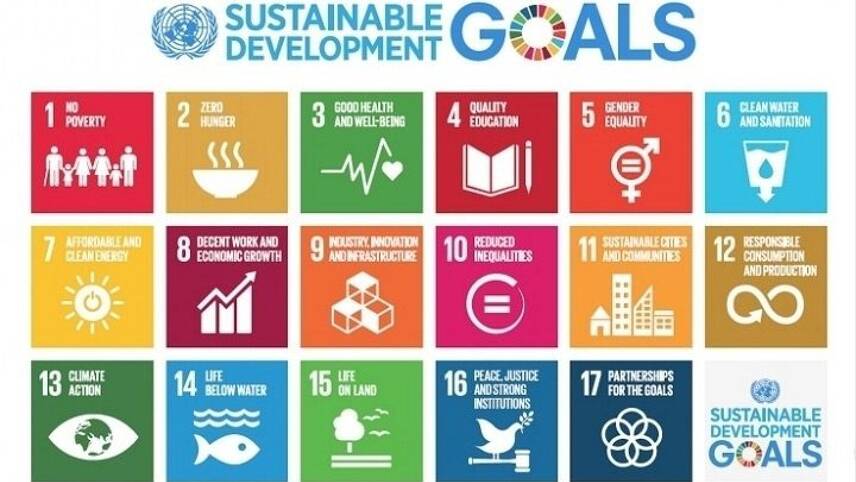Register for free and continue reading
Join our growing army of changemakers and get unlimited access to our premium content

The coronavirus pandemic provided an alarming wake-up call to all of us. Despite all the warnings from the global health community, in the UK we were ill-prepared for a pandemic of its significance. Our organisations had to pivot and adapt to a rapidly changing and uncertain situation.
Many have recovered, or are recovering, thanks to significant intervention from the Government to protect jobs and wages. Aside from the personal and emotional toll many faced, the deeply entrenched inequalities that exist in our society were laid bare. Our key workers, people with existing health conditions, those in care, those living in poor overcrowded housing, young people, and people from BAME groups suffered most.
At the time, leaders from many of the UK’s leading businesses signed a letter calling on the Prime Minister to put the Sustainable Development Goals (SDGs) at the heart of recovery plans: to prioritise the most vulnerable; to build coherent policies for our transition to net zero; and to unite all sectors behind a plan for a stronger and more resilient economy.
We are now facing another wake-up call. A cost of living and energy crisis that will push more people into poverty and is already leading to a business survival crisis, especially for the UK’s 5.6 million SMEs.
The SDGs are a global agenda committed to by governments but core to their achievement is the fact that all of us play a role in reaching these ambitious and forward-looking Goals. We must remember that they were not designed for business. But the outcomes they seek to deliver are directly relevant to the continued success of businesses of all sizes. Some SDG targets are about compliance with basic responsibilities. Others are about going further to address external challenges that aren’t easily resolved and require ambition, innovation, and collaboration.
Evidence consistently shows that top-level leadership is missing from within businesses and while progress has been made in the number integrating SDGs in their reporting, the number who have integrated them into core strategy is limited. Our preoccupation with net zero, though for good reason, has distracted us from other connected and significant issues.
Business must recognise that though issues like poverty and inequality are systemic and society-wide, they fundamentally undermine a sustainable and prosperous economy. One where certainty and predictability aid business growth, investment, and development. These issues create the sort of political and social instability that dominates discourse and draws attention away from making sure business has the enabling environment it needs to act on climate change and ecological breakdown. In essence, overcoming systemic and persistent social challenges is a necessary part of achieving net-zero and living within our planetary boundaries.
As the Goals were not designed as a framework for business a certain amount of caution and uncertainty was understandable at first. But organisations like the UN Global Compact have been creating tools and resources since 2015 to aid businesses in their journey with the SDGs. The UN Global Compact Network UK is here to help UK businesses engage with, integrate, and progress the Goals so they are core to their strategy and their business success. As we can see from the insights in this report, the opportunities to business are numerous and the potential to create value immense. But only if the ambition is there.
UN Global Compact Network UK’s Measuring Up report
Progress in the UK towards the delivery of the UN’s 17 SDGs has remained fairly stagnant, with performance only classed as good on 17% of the targets relevant to the domestic delivery of the Goals.
That is the headline finding of the second ‘Measuring Up’ report from the UN Global Compact Network UK. The report is the first full update to the series since 2018.
The report reveals that, over the past four years, improvements have only been made in relation to 23 targets. These include reducing the maternal mortality ratio and the ratio of deaths of children under five; “substantially” increasing the share of renewable energy in the energy mix; enhancing scientific research; improving regulation of financial markets and institutions and cutting food waste.
edie’s SDG blueprint report
This piece from Emily Auckland acts as the foreword for edie’s latest SDG report.
This edie Insight report, sponsored by Reconomy, seeks to provide the answers. Combining expert insight with real-life case studies, the report offers an end-to-end overview of exactly how businesses can advance global progress towards achieving all 17 SDGs by 2030.
The report provides a snapshot of progress against all 17 Goals, outlines the action gaps and states how businesses can deliver the biggest impact. It also features case studies and opinion pieces that are most relevant to edie’s core audience of sustainability and energy changemakers. Each section also pulls out three reasons for hope” where positive progress has been delivered. However, even with these examples, the warning signs are clear – the world needs to step up its efforts on the SDGs, with progress on some targets even backsliding as a result of Covid-19.



Please login or Register to leave a comment.